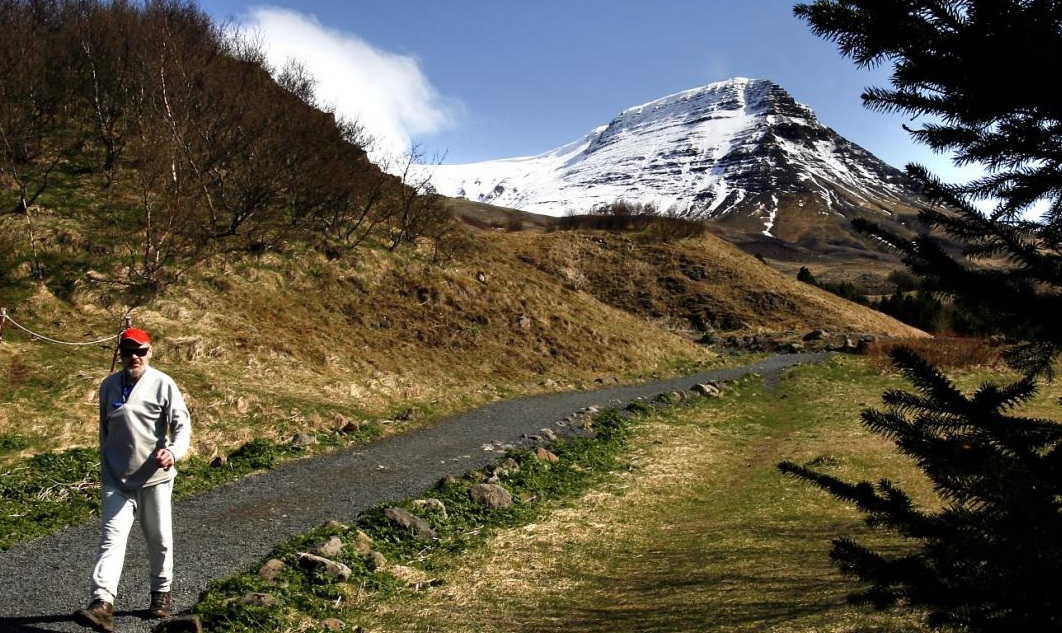More than half of people between 60 and 65 in Iceland are still in
work. Only one in four Estonians and Lithuanians in the same age group
work, and among older Norwegians the number is even lower.
The Icelanders’ activity has fallen
considerably among 70 to 74 year olds. Yet Icelanders still work more
than both their Nordic neighbours, people in the Baltics and Brits.
Just under one in five Icelanders keep on working past 70. This trend
is reflected in the other countries too, and Finland, Norway, Sweden
and Lithuania have the lowest numbers of working 70 year
olds.
In Iceland most people can retire at
67. Public sector workers can retire at 65 but are allowed to work
until they are 70. Women usually retire earlier than men because of
health issues. The average early retirement age for women is just above
65 while the average retirement age for men is 70.
All Icelanders pay part of their
salary into private pension funds. At 65 people can begin to draw money
from their retirement fund. Professor Stefán Ólafsson at the University
of Iceland says this might be a reason why women feel they can take
early retirement.
Valuing active older
people
In Iceland it is considered important
to keep working into old age. There was a huge demand for labour before
the banking crash of 2008, and older people had no problem finding
jobs. They wanted to improve their living conditions by earning some
extra cash.
The managing director at the
Confederation of Icelandic Employers, Vilhjálmur Egilsson, says older
people’s position in the labour market has not been influenced by the
banking crisis and that older people have not lost their jobs at a
greater rate than people from other age groups. He says the
Confederation encourages employers to hold on to their workers for as
long as possible, no matter their age. He thinks older workers are much
appreciated and highly valued by Icelandic employers.
In recent years older Icelanders have
generally concluded they cannot live off their pension alone. This is
one of the reasons older people have continued to work for as long as
possible. So far it has paid off.
But the chairwoman at the Icelandic
pensioners’ association, Jóna Valgerður Kristjánsdóttir, points out
that the labour market has changed in recent years. The older
population has been well received in the labour market and as a result
they have stayed in work for longer. Yet she predicts a change in
attitudes and that more people of pensionable age no longer will want
to work. Not least because it no longer pays as much as it used
to.
One of the reasons, says
Kristjánsdóttir, is new rules in Iceland which mean extra income leads
to cuts of up to 60 percent in pension payments and state benefits.
Retired people who work will therefore receive less than before. Some
recent tax increases have also hit pensioners hard.
Impact on
earnings
Kristjánsdóttir is also critical of
the government. She reckons its aim is for older people to retire
earlier in order to create jobs for younger people.
“People are healthier than they were
20 years ago. I am convinced most of the older people would work for as
long as they could manage if their pay did not impact on their pensions
and the various state benefits,” says Kristjánsdóttir. She also
wonders:
“Why should you work if it affects
your income in such a dramatic fashion?”
But professor Stefán Ólafsson at the
University of Iceland says surveys show there are many reasons for why
employers value older workers’ efforts in the labour market.
“One survey from 2004-2005 shows that
employers consider older employees to be both more responsible and
conscientious and that their professional experience is a great
advantage,” says professor Ólafsson.
A different tradition for
in-service training
Iceland has a different and shorter
tradition for in-service training compared to the rest of the Nordic
region. Not until 2010 did a new law result in the organisation of a
system for in-service training aimed at people in work. Publicly funded
in-service training only exists for people with lower education, who
represent a third of Iceland’s labour force.
Iceland now has several centres for
in-service training which operate according to the new legislation.
Courses are held in accordance with guidelines from the Ministry of
Education and offer study advice, employment guidance and evaluation of
skills for individual workers. There are no courses specifically aimed
at older workers, says Stefán Stefánsson, head of division at Iceland’s
Ministry of Education.
“Older people have visited us at the
ministry to request specially targeted in-service training, but this
has yet to happen,” says Stefánsson.
Despite this, there is a lot of focus
on in-service training in Iceland, according Vilhjálmur Egilsson from
the Confederation of Icelandic Employers.
“We have understood the importance of
in-service training now,” he says.
Yet there has not been as much interest for courses and seminars
among older workers compared to the younger ones, notes Professor
Stefán Ólafsson at the University of Iceland.
“For some reason older people participate less in in-service
training than younger ones,” he says.





